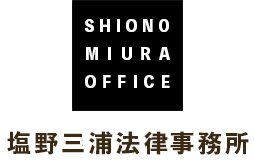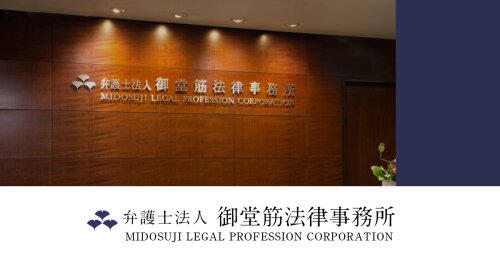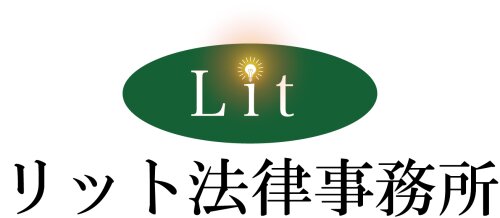Best Merger & Acquisition Lawyers in Osaka
Share your needs with us, get contacted by law firms.
Free. Takes 2 min.
List of the best lawyers in Osaka, Japan
About Merger & Acquisition Law in Osaka, Japan
Merger & Acquisition (M&A) law in Osaka is an integral part of Japan’s business landscape. Osaka, as a major economic center, hosts diverse industries, including manufacturing, technology, and commerce, all of which frequently undergo corporate restructuring. M&A refers to the processes by which companies consolidate through mergers or acquire other businesses. The legal framework in Japan ensures that such transactions are conducted fairly, following established rules and procedures. Efficient M&A processes enable growth, market expansion, and restructuring within companies, helping them stay competitive both domestically and internationally.
Why You May Need a Lawyer
M&A transactions involve complex negotiations, regulatory requirements, and significant financial considerations. You may need legal support in the following situations:
- Drafting and reviewing merger or acquisition agreements to protect your interests
- Conducting due diligence to identify hidden risks or liabilities in a target company
- Navigating Japanese corporate and competition laws
- Negotiating terms related to employment, intellectual property, and contracts
- Managing cross-border transactions involving foreign entities
- Handling tax implications and financial structuring
- Complying with disclosure and reporting obligations
- Resolving disputes arising from M&A transactions
Local Laws Overview
Japan has a comprehensive legal system governing M&A, with several statutes and guidelines that impact transactions in Osaka. The key legal aspects include:
- Company Law: The Companies Act outlines requirements for mergers, share exchanges, company splits, and acquisitions.
- Financial Instruments and Exchange Act: Sets out regulations for tender offers and securities transactions.
- Antimonopoly Law: The Act on Prohibition of Private Monopolization and Maintenance of Fair Trade ensures transactions do not violate competition laws.
- Foreign Exchange and Foreign Trade Act: Governs inward direct investments by overseas entities, including notification and approval requirements.
- Labor Law: Safeguards employee rights during organizational changes.
- Disclosure Requirements: Listed companies have obligations to disclose material matters related to M&A under the Tokyo Stock Exchange rules.
- Local Practices: Regional authorities and customs may impact procedural and documentary requirements, especially in Osaka’s commercial sectors.
Frequently Asked Questions
What is the typical process for an M&A transaction in Osaka?
A typical M&A transaction starts with preliminary negotiations and due diligence. After reaching a basic agreement, parties sign a letter of intent, followed by a detailed contract. The deal is subject to regulatory reviews, internal approvals, and may require shareholder or board consent. The transaction is completed upon fulfilling closing conditions.
Do foreign companies face any special requirements when acquiring a Japanese company?
Yes, foreign investors must comply with the Foreign Exchange and Foreign Trade Act. Certain sectors require notification or approval from Japanese authorities, and the government can restrict acquisitions for national security or other reasons.
What is due diligence, and why is it important?
Due diligence is a comprehensive investigation of the target company’s business, finances, legal standing, and operations. It helps buyers assess risks, identify liabilities, and make informed decisions on structure and valuation.
Do I need approval from Japanese authorities for an M&A deal?
Some M&A transactions require approvals or prior notifications, especially those involving large companies, publicly traded companies, or foreign investors. Regulatory bodies, such as the Japan Fair Trade Commission, may review deals for competition law compliance.
How are employees affected by mergers and acquisitions?
Japanese Labor Law provides protections for employees during M&As. In asset transfers or company splits, employee consent may be required. Notification to employees and labor unions is common practice.
What are common risks in a Japanese M&A deal?
Risks include undisclosed liabilities, difficulty integrating business operations, cultural differences, buyer or seller misrepresentations, and regulatory issues. Effective legal support helps mitigate these risks.
Can minority shareholders block a merger or acquisition?
Minority shareholders typically cannot block a merger if the procedure follows legal requirements. However, they may have rights to demand share repurchase or object to the transaction under certain conditions.
How long does it take to complete an M&A transaction in Osaka?
Timeline varies based on deal complexity, regulatory reviews, and negotiations. Straightforward transactions may take several months, while more complex or cross-border deals can take longer.
What tax implications should I consider in a Japanese M&A?
Tax considerations include capital gains, stamp duty, registration taxes, and structuring for optimal tax efficiency. Consulting with a tax advisor and legal counsel ensures proper compliance and minimizes adverse consequences.
What happens if a dispute arises after the deal closes?
Disputes are generally resolved through negotiation, mediation, arbitration, or court litigation, depending on the terms of the contract and the nature of the dispute. Having clear contractual terms and dispute resolution clauses is vital.
Additional Resources
For further legal assistance and information regarding M&A in Osaka, you can consult the following:
- Osaka Bar Association - Offers lawyer referrals and information on legal services in Osaka.
- Japan Fair Trade Commission - Provides guidance on competition law compliance in M&A transactions.
- Japan External Trade Organization (JETRO) - Supports foreign investors and can advise on legal requirements for acquisitions.
- The Ministry of Justice - Oversees company registration and legal compliance matters.
- Osaka Chamber of Commerce and Industry - Assists with business regulations and local economic insights.
Next Steps
If you are considering a merger or acquisition in Osaka, your best course of action is to consult an experienced M&A lawyer who understands local laws and practices. Collect all relevant information about your target company, proposed deal structure, and goals. Schedule an initial consultation to assess your options, potential risks, and legal requirements. Proper legal guidance will help navigate complex regulations, protect your interests, and facilitate a successful transaction.
Lawzana helps you find the best lawyers and law firms in Osaka through a curated and pre-screened list of qualified legal professionals. Our platform offers rankings and detailed profiles of attorneys and law firms, allowing you to compare based on practice areas, including Merger & Acquisition, experience, and client feedback.
Each profile includes a description of the firm's areas of practice, client reviews, team members and partners, year of establishment, spoken languages, office locations, contact information, social media presence, and any published articles or resources. Most firms on our platform speak English and are experienced in both local and international legal matters.
Get a quote from top-rated law firms in Osaka, Japan — quickly, securely, and without unnecessary hassle.
Disclaimer:
The information provided on this page is for general informational purposes only and does not constitute legal advice. While we strive to ensure the accuracy and relevance of the content, legal information may change over time, and interpretations of the law can vary. You should always consult with a qualified legal professional for advice specific to your situation.
We disclaim all liability for actions taken or not taken based on the content of this page. If you believe any information is incorrect or outdated, please contact us, and we will review and update it where appropriate.















